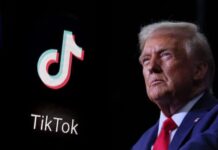The criticism of Donald Trump’s recent tariff measures has been levelled by Kimbal Musk, younger brother of Elon Musk and a noted entrepreneur. On social media platform X, Kimbal dubbed Trump’s strategy as a ‘structural, permanent tax on the American consumer.’ He told his blog followers that Trump is ‘becoming the highest tax American president in generations’ and is taking aim not at a policy he counts as unfairly targeting everyday people.
The Core of the Criticism: Tariffs As Consumer Taxes
His main concern is how Trump’s tariff policy is going to impact imports from China in the economic sense. He maintains that tariffs against foreign producers do not punish them, rather, they wind up being borne by American consumers at a higher price. To Kimbal, the policy is harmful to working-class families as well as businesses that rely on global supply chains. It is a growing backlash against Trump’s protectionist trade agenda.
Also read: Elon Musk Criticizes Trump’s Tariffs Using Milton Friedman Video: Find Out Details
Elon Musk’s Subtle But Firm Opposition
Just like Elon, Kimbal did not shy away from taking a direct approach. The Tesla CEO reposted an anti-tariff video without explicitly mentioning Trump, but unmistakably the businessman was endorsing the position. The fear of tariffs has been a concern of Elon’s for a long time as Tesla has global supply chains that can be shut out by trade restrictions. He has taken legal action against earlier Trump-era tariffs and reportedly went directly to Trump to reconsider the last round of duties.
The Impact of Rising Tariffs on Tesla’s Business.
The stakes are high for Elon Musk and Tesla. In addition, there is documentation that shows that as Trump plans a new 50% tariff on Chinese goods, Tesla’s business could take a major hit. The stock prices and demand are falling and that problem alone will keep them busy. However, market analysts say a key reason behind investor trust is the political fallouts in Musk and Trump’s relationship. For instance, the stock of Tesla has gone down more than 38 per cent this year.
A Shift in Tone From Kimbal Musk
It’s also striking because Kimbal’s criticism is coming at such a time. At the time, only weeks ago, he had praised Trump for featuring a crop of Tesla vehicles at a White House event. The shift in tone reveals a much greater break between the Musk family and Trump’s economic policy. It also demonstrates that the tariffs’ impact has shifted from being a narrow business issue to a public plea.
A Broader Debate: Protectionism vs. Free Trade
In a broader sense, it reinforces a larger debate throughout U.S. economic policy. From an economic nationalism and protectionist vantage point, Trump’s tariffs were rooted. Yet, Kimbal and Elon, among other critics, say that a free market approach with minimal trade barriers is in the best interest of both businesses and consumers. At the same time, Elon has expressed support for the idea of a zero-tariff zone between the U.S. and the EU to encourage international trade and collaboration.
Political and Economic Implications in an Election Year
These are likely to be intensified as the U.S. edges closer to a critical election year. Once associated with the sort of business-friendly image Trump had, the tech industry appears to be getting away from his trade policies. Influential entrepreneurs like Kimball and Elon Musk are starting to speak with voices, and in doing so, are making one clear move away from the way influential entrepreneurs engage with politics — especially regarding taxation, global trade, etc.
A Growing Rift Between Tech and Politics
The contrast between Trump’s tariff policy and Kimbal Musk’s vocal criticism of such policy marks a notable moment in the war being waged against Trump between Silicon Valley and populist politics. Throughout Trump’s protectionist path, the tech and business world has objected to Trump’s stickiness on protectionism, arguing for policies that encourage innovation, global partnerships and the best consumer-friendly economics. At the moment the two great forces writ large in this debate seem chosen to widen this divide even more.








